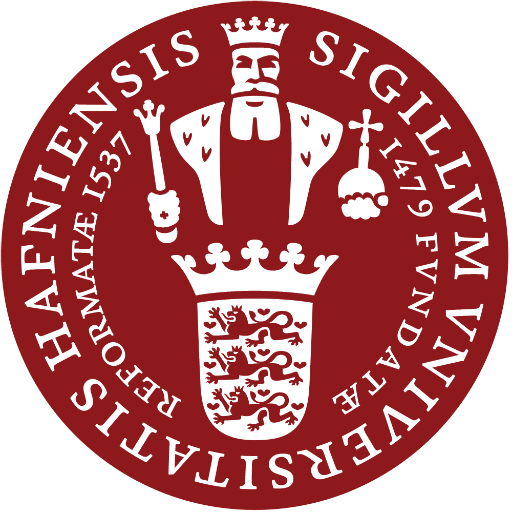PhD fellowship in “Renal autoregulation in health and disease: New insights into topology and dynamics
Description of the scientific environment
This project integrates two research groups – “Biophotonics and Biosimulation” and “Renal Hemodynamics”. We combine novel imaging and experimental techniques, advanced methods of data analysis and mechanism-based modelling to bring new insights into functional interactions between the key components of cells, tissues, and organs, as well as to study how diseases change these interactions. In particular, we develop new approaches for Raman spectroscopy and laser speckle imaging and apply them to study dynamics of vascular networks in kidney, retina, and brain in vivo. Our groups were the first who employed the concept of synchronization with respect to renal autoregulation.
Project description
The human organism is an integrated network where complex physiological systems, each with its own regulatory mechanisms, continuously interact, and where failure of one system can trigger a breakdown of the entire network. The vascular network of each system is uniquely adapted to the function of the system. Autoregulation ensures that the system receives adequate oxygen and nutrition and at the same time it protects the system from damaging pressure fluctuations. The kidney links cardiovascular and metabolic systems providing regulation of hormones release and blood pressure. With this, changes in renal vasculature can be a cause or an aggravating factor in various diseases (i.e., hypertension, diabetes etc.) However, little is known about pathology-related changes in the renal microcirculation and their effect on kidney autoregulation.
The student will use an integrated approach – a combination of experimental in vitro, in vivo and in silico techniques – to map topological and dynamical patterns of the renal microcirculation. The student will be guided through surgery procedures and assembling steps of multi-scale laser speckle system to perform independent experiments on renal blood flow imaging. Tissue clearance and confocal microscopy will be used to extract information on the anatomical structure of the renal vascular networks. The student will analyse data collected under control and pathological conditions and will provide their interpretation.
We are looking for an exceptional candidate with interdisciplinary skills: animal experimentation, optical imaging, advanced data analysis. It is crucial that the candidate has experience in coordinating science across physiological, engineering and computational specialities.
Principal supervisor
Associate Prof. Olga Sosnovtseva, Department of Biomedical Sciences, olga@sund.ku.dk
(co-supervisors Associate Prof. Charlotte Mehlin Sørensen and Dr. Dmitry Postnov)
(co-supervisors Associate Prof. Charlotte Mehlin Sørensen and Dr. Dmitry Postnov)
Start 1 September 2019 or soon thereafter
Duration 3 years. The current funding only allow for 3 years PhD program, which require that the candidate already has a master degree.
Job description
Your key tasks as a PhD student at SUND are:
- Carry through an independent research project under supervision
- Complete PhD courses or other equivalent education corresponding to approx. 30 ECTS points
- Teach and disseminate your research
- Write a PhD thesis on the grounds of your project
Key criteria for the assessment of candidates
Applicants must have qualifications corresponding to a master’s degree related to the subject area of the project e.g. physiology, biology, bioengineering, medical physics or similar;
- Experience with animal (rodents) experiments is desirable. The candidate will perform surgery (surgical exposure of the kidney, tracheostomy, blood vessels cannulation). Prior skills in animal experiments are not required, however, the candidate should be able to learn the procedure within the first few months after being accepted to the program;
- Experience with optical imaging methods is highly meriting;
- Experience with programming and data analysis with fluency in Matlab and/or Python is highly meriting;
- The candidate should have basic knowledge in vascular and/or renal physiology;
- High proficiency in English is an absolute requirement.
Place of employment
The place of employment is at Department of Biomedical Sciences, Faculty of Health and Medical Sciences, University of Copenhagen. We offer creative and stimulating working conditions in a dynamic and international research environment. Our research facilities include state-of-the-art laboratories, core and computational facilities.
Terms of employment and employment
The employment as PhD fellow is a full time and for 3 years. Starting date is 1 September 2019 or soon thereafter.
The appointment as a PhD fellow is for 3 years. It is conditioned upon the candidate’s successful enrolment in the PhD school at the Faculty of Health and Medical Sciences, University of Copenhagen. This requires submission and acceptance of an application for the specific project formulated by the candidate.
The PhD study must be completed in accordance with The Ministerial Order on the PhD programme (2013) and the University’s rules on achieving the degree. Salary, pension and terms of employment are in accordance with the agreement between the Ministry of Finance and The Danish Confederation of Professional Associations on Academics in the State. Depending on seniority, the monthly salary begins around 26.755 DKK /approx. 3.567 EUR (April 2018-level) plus pension.
For more information click "LINK TO ORIGINAL" below.
This opportunity has expired. It was originally published here:
https://employment.ku.dk/phd/?show=148998
